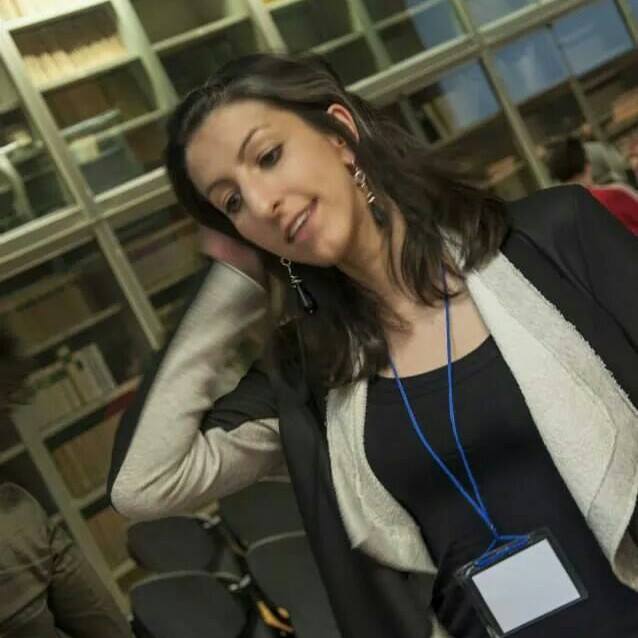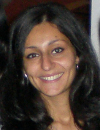Studying at the University of Verona
Here you can find information on the organisational aspects of the Programme, lecture timetables, learning activities and useful contact details for your time at the University, from enrolment to graduation.
Academic calendar
The academic calendar shows the deadlines and scheduled events that are relevant to students, teaching and technical-administrative staff of the University. Public holidays and University closures are also indicated. The academic year normally begins on 1 October each year and ends on 30 September of the following year.
Course calendar
The Academic Calendar sets out the degree programme lecture and exam timetables, as well as the relevant university closure dates..
| Period | From | To |
|---|---|---|
| 1° e 2° semestre (corsi annuali) PROFESSIONE SANITARIE | Oct 1, 2024 | Sep 30, 2025 |
| 1 SEMESTRE PROFESSIONI SANITARIE | Oct 1, 2024 | Dec 20, 2024 |
| 2 SEMESTRE PROFESSIONI SANITARIE | Jan 2, 2025 | Sep 30, 2025 |
Exam calendar
To view all the exam sessions available, please use the Exam dashboard on ESSE3. If you forgot your login details or have problems logging in, please contact the relevant IT HelpDesk, or check the login details recovery web page.
Should you have any doubts or questions, please check the Enrollment FAQs
Academic staff
Study Plan
The Study Plan includes all modules, teaching and learning activities that each student will need to undertake during their time at the University.
Please select your Study Plan based on your enrollment year.
1° Year
| Modules | Credits | TAF | SSD |
|---|
2° Year It will be activated in the A.Y. 2025/2026
| Modules | Credits | TAF | SSD |
|---|
3° Year It will be activated in the A.Y. 2026/2027
| Modules | Credits | TAF | SSD |
|---|
| Modules | Credits | TAF | SSD |
|---|
| Modules | Credits | TAF | SSD |
|---|
| Modules | Credits | TAF | SSD |
|---|
| Modules | Credits | TAF | SSD |
|---|
Legend | Type of training activity (TTA)
TAF (Type of Educational Activity) All courses and activities are classified into different types of educational activities, indicated by a letter.
Clinical practice (2nd year) (It will be activated in the A.Y. 2025/2026)
Teaching code
4S01546
Credits
21
Scientific Disciplinary Sector (SSD)
MED/50 - SCIENZE TECNICHE MEDICHE APPLICATE
Learning objectives
KNOWING AND BEING ABLE TO APPLY
- all appropriate tools for obtaining a detailed anamnesis
- subjective and objective diagnostic methods useful for the identification of auditory and vestibular disorders
- an analysis of audiological disorders also in differential-diagnostic terms
KNOWING HOW TO PERFORM
- the study of acoustic oto-emissions and the methods provided for newborns universal audiological screening such as Auditory Brainstem Responses, BOEL test, play audiometry and other behavioural audiometries
- otoneurological ABR and steady-state responses
- study of cochlear implant telemetric responses
- medium and long latency auditory evoked potentials
- audiometric examinations to quantify speech-in-noise perception and sound localisation abilities
- audiometry with hearing aids and/or cochlear implants
- datalogging and amplification parameters assessment using the audiometer hearing aid ear fitting audiology unit
AUTONOMY OF JUDGEMENT
- in knowing how to apply and interpret instruments such as IT-MAIS and audiometric examinations
- in evaluating the contents of a neuroradiology report
BEING ABLE TO COMMUNICATE
- clearly and unambiguously with specialist and non-specialist stakeholders
- and listen carefully in order to understand and synthesise relevant information on all issues, understanding their content;
- with the person with imbalance in order to take care of him/her, and his/her family by applying the fundamentals of relational dynamics
- with colleagues and co-workers by passing on their knowledge, cultural and ethical heritage
- with trainees and colleagues by managing supportive training and tutoring activities oriented towards lifelong learning
- with users, other professionals, social-health facilities and other components where their professional competence is required
Examination Methods
Oral examination with traditional interrogation. The production of papers, digital presentations, reports and interpretations of even complex clinical cases, analysis of a literature article on peculiar instrumental pictures may be required. The professor or tutor will assess the skills acquired also by conducting on-field tests without any instructions or guidance documents.
Evaluation criteria
Good critical skills, clear and linear presentation using specific terminology, ability to summarise, pragmatism in the technical-clinical approach
Career prospects
Module/Programme news
News for students
There you will find information, resources and services useful during your time at the University (Student’s exam record, your study plan on ESSE3, Distance Learning courses, university email account, office forms, administrative procedures, etc.). You can log into MyUnivr with your GIA login details: only in this way will you be able to receive notification of all the notices from your teachers and your secretariat via email and soon also via the Univr app.
Prova Finale
Per essere ammessi alla prova finale occorre avere conseguito tutti i crediti nelle attività formative previste dal piano degli studi, compresi quelli relativi all’attività di tirocinio. Alla preparazione della tesi sono assegnati 7 CFU. La prova è organizzata, con decreto del MIUR di concerto con il Ministro del Lavoro, della Salute e delle Politiche Sociali, in due sessioni definite a livello nazionale. La prova finale, con valore di esame di Stato abilitante all’esercizio della professione di Tecnico Audioprotesista, si compone di:
Prova pratica: nel corso della quale lo studente deve dimostrare di aver acquisito le conoscenze e abilità teorico-pratiche e tecnico-operative proprie dello specifico profilo professionale.
Tesi: redazione e dissertazione di un elaborato.
Lo studente per il lavoro di tesi avrà la supervisione di un docente dell’Ateneo, detto Relatore, ed eventuali correlatori in possesso almeno della laurea triennale anche se esterni al Corso di Laurea. Scopo della tesi è quello di impegnare lo studente in un lavoro di formalizzazione, progettazione e di ricerca, che contribuisca sostanzialmente al completamento della sua formazione professionale e scientifica. Il contenuto della tesi deve essere inerente a tematiche o discipline strettamente correlate al profilo professionale.
Valutazione della prova pratica
Al voto della prova pratica espresso dalla Commissione in trentesimi viene assegnato il seguente punteggio:
da 18/30 a 20/30 = 1 punto;
da 21/30 a 23/30 = 2 punti;
da 24/30 a 26/30 = 3 punti;
da 27/30 a 29/30 = 4 punti;
da 30/30 a 30/30 e lode = 5 punti.
Valutazione della tesi
La valutazione della tesi sarà basata sui seguenti criteri: livello di approfondimento del lavoro svolto; contributo critico del laureando; accuratezza della metodologia adottata per lo sviluppo della tematica.
Punteggio finale
Il punteggio finale di Laurea è espresso in cento decimi ed è formato:
- Media ponderata rapportata a 110 dei voti conseguiti nei 20 esami curriculari (arrotondata per eccesso o per difetto al numero intero più vicino);
- Somma delle valutazioni ottenute nella prova pratica (fino ad un massimo di 5 punti);
- Discussione della Tesi: da 0 fino ad un massimo di 4 punti per tesi compilativa; da 0 fino ad un massimo di 6 punti per tesi sperimentale.
La commissione di Laurea potrà attribuire ulteriori punti anche in base a:
- Presenza di eventuali lodi ottenute negli esami sostenuti fino ad 1 punto aggiuntivo;
- Partecipazione ai programmi Erasmus fino a 2 punti aggiuntivi;
- Laurea entro i termini della durata normale del corso 2 punti aggiuntivi.
La lode può venire attribuita con parere unanime della Commissione ai candidati che conseguano un punteggio finale maggiore o uguale a centodieci. È prevista la possibilità per lo studente di redigere l'elaborato in lingua inglese

 cristina.bombieri@univr.it
cristina.bombieri@univr.it
 045-8027284
045-8027284






